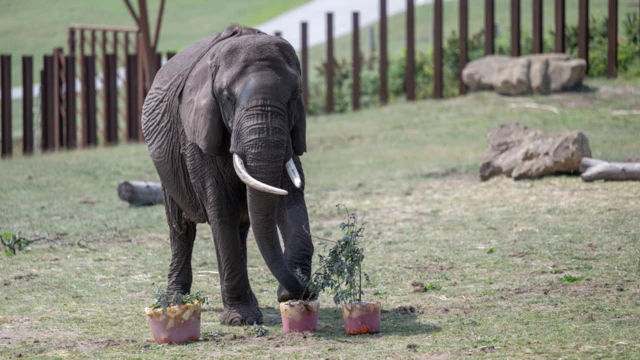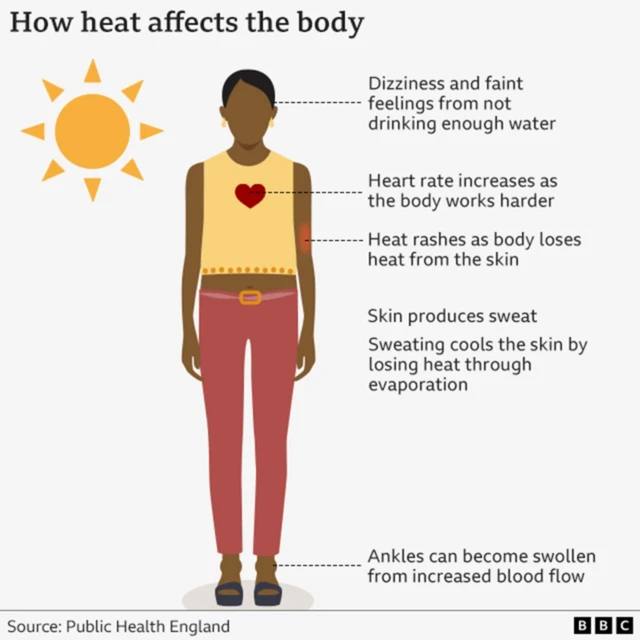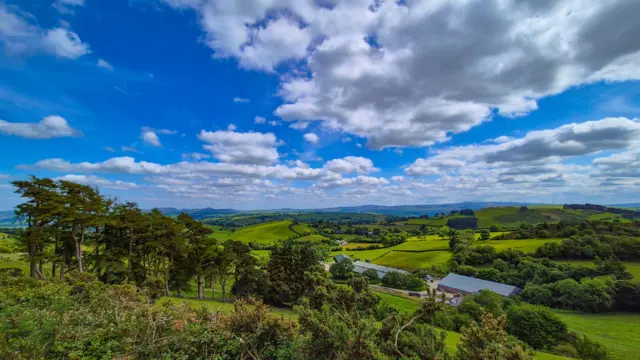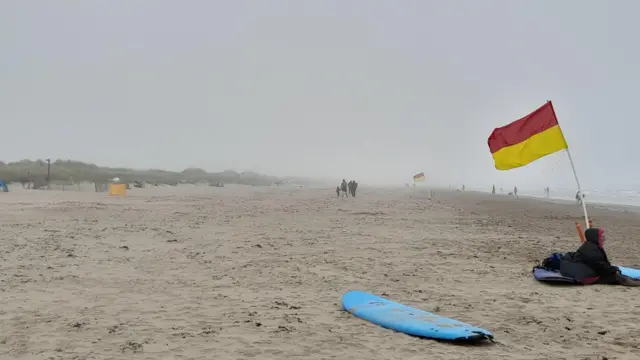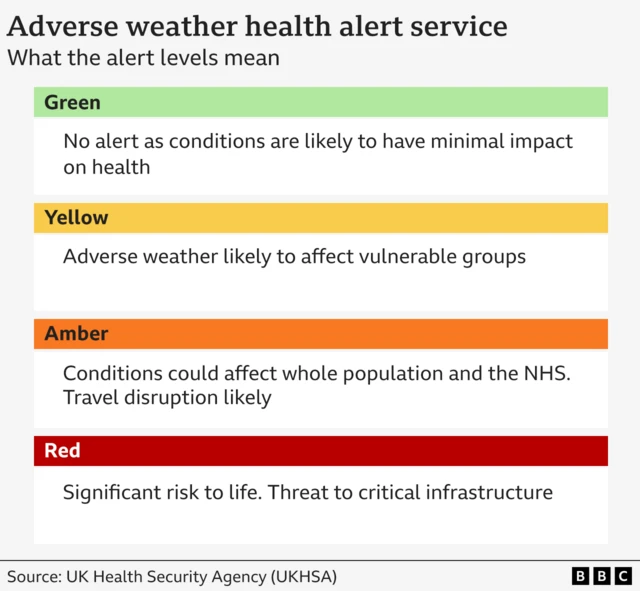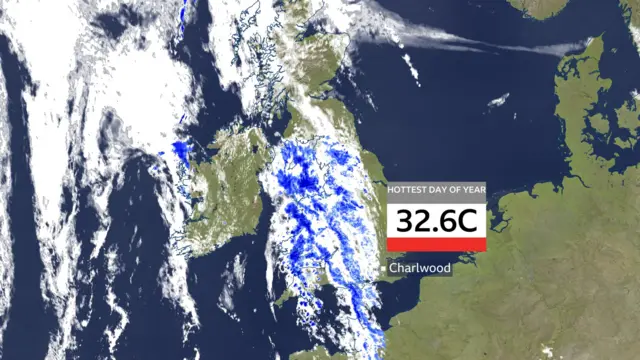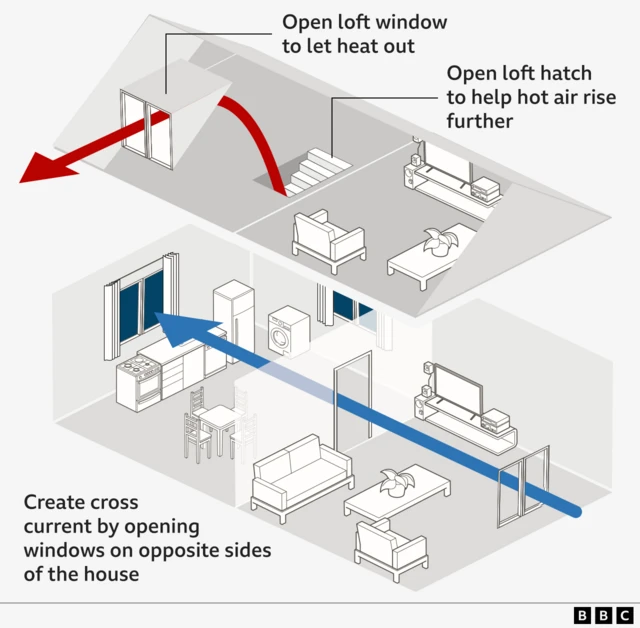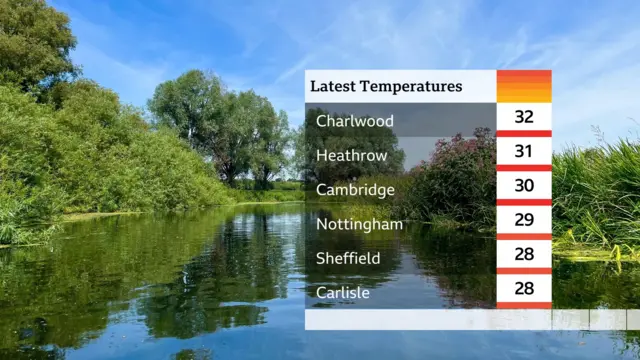Heat records and storm warnings on Summer's longest daypublished at 17:10 BST 21 June
 Jamie Whitehead
Jamie Whitehead
Live editor
When we use the term "I had a long day", we often mean work was difficult or the kids were playing up.
But today many of us will use the term a lot more literally.
It seems a long time ago now since our colleagues in Bristol brought you their coverage of the summer solstice - the longest day of the year, with record-breaking crowds descending on Stonehenge to celebrate.
As we moved into more regular daylight hours, Charlwood in Surrey recorded the hottest temperature of 2025 so far, reaching 32.6C, which later beat its own record, rising to a provisional 33.2C.
But it's not all pub gardens and ice creams. As we move into the evening, the Met Office's yellow weather warning has just kicked in in parts of northern England and Wales, and there's also flood warnings in place on the Scottish Borders.
We're going to end our live coverage now, but you can keep up-to-date with what's happening in our news story, and you can check your local weather forecast here.
If you're in one of the areas where's it's going to stay hot, here's six ways to keep your home and yourself cool in hot weather. There's also more information on heat health alerts and our lead weather presenter Sarah Keith-Lucas has had a look at whether heatwaves will become the new normal.
While you've been out enjoying the Sun, Rorey Bosotti and I have been locked away in the BBC Newsroom, thank you for joining us.



